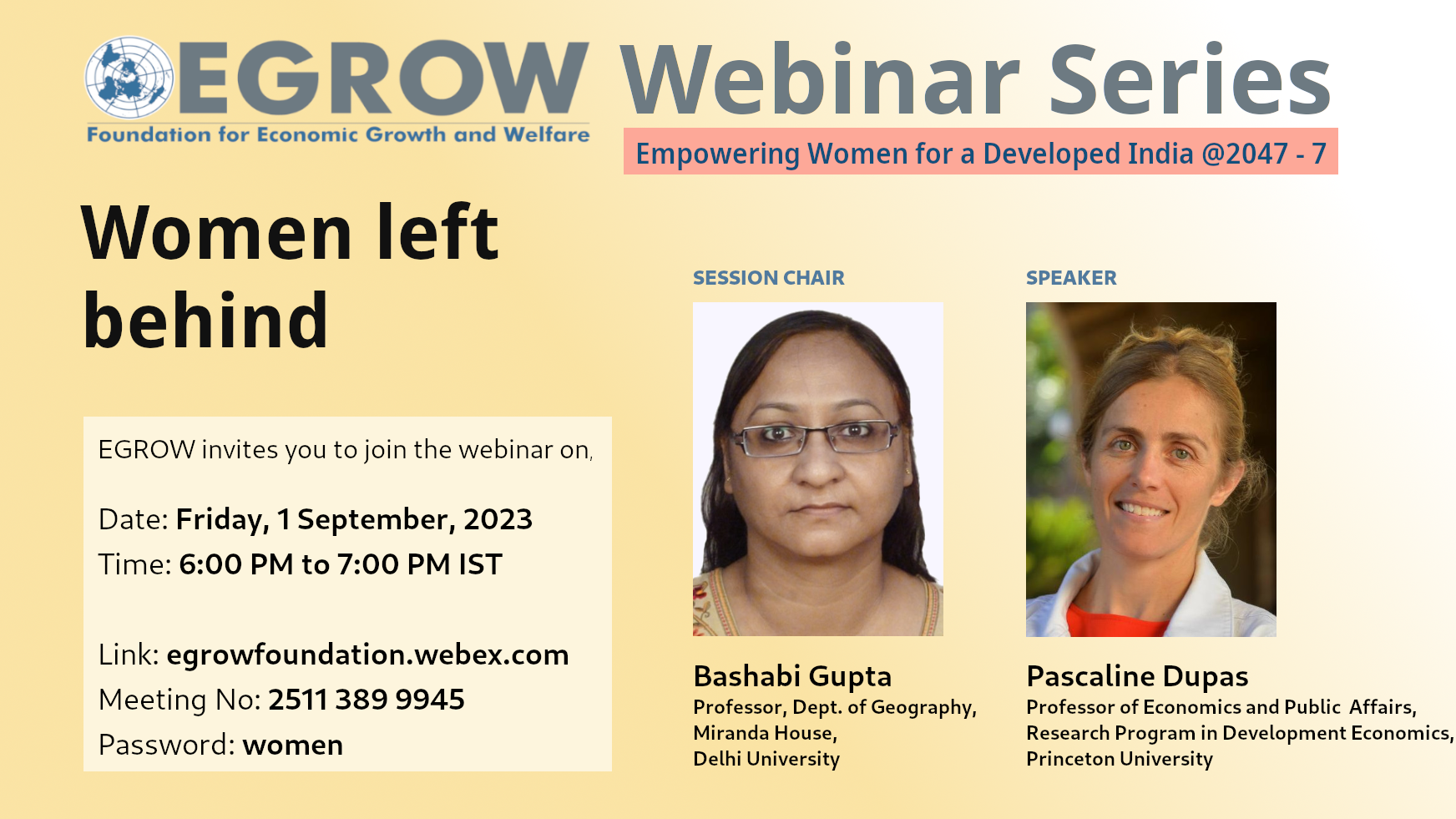Women left Behind

Webinar Link
Meeting No: 2511 389 9945
Password: women
Certificate of Participants
To recieve certificates, please register and attend
Abstract
It is being observed that there are large gender disparities within a government program that entitles 46 million poor individuals to free hospital care. The speaker shows that care is not free in practice and higher costs are associated with larger disparities. Further, lowering care costs increases female utilization but does not reduce gender disparities because marginal beneficiaries are as likely to be male as inframarginals. It is found that long-term exposure to local female leaders reduces disparities by addressing factors lowering female care. However, in the presence of gender bias, subsidizing social services may fail to address gender inequalities without actions that specifically target females.
About the Speakers
Bashabi Gupta
Bashabi Gupta is a professor at the Department of Geography, Miranda House, Delhi University. She was a Felix scholar and completed her doctoral research at the CSRD, School of Social Sciences, Jawaharlal Nehru University and the Centre for Studies of Developing Societies (ICSSR-CSDS Doctoral Fellow) New Delhi.
Her research interests are centred on Sustainable Community Livelihoods and Resilience, Differential and Comparative Development Patterns for India and African nations, Gender and Development, Social Geography, Tribal Studies, North Eastern India Studies and Climate Variability. She uses GIS and Remote Sensing tools in her research, along with qualitative and quantitative methods.
Pascaline Dupas
Pascaline Dupas is Professor of Economics and Public Affairs at Princeton University. She was Assistant Professor of Economics at Dartmouth College from 2006 to 2008, Assistant Professor of Economics at UCLA from 2008 to 2011, and was the Kleinheinz Family Professor of International Studies and Faculty Director of the King Center on Global Development at Stanford University.
Pascaline Dupas is a development economist seeking to better understand challenges facing poor households in lower income countries. Her aim is to identify tools and policies that can help improve the lives of those living in poverty. Her ongoing work includes studies of education policy in Ghana, family planning policy in Burkina Faso, digital credit regulation in Malawi, and government subsidized health insurance in India, among others.